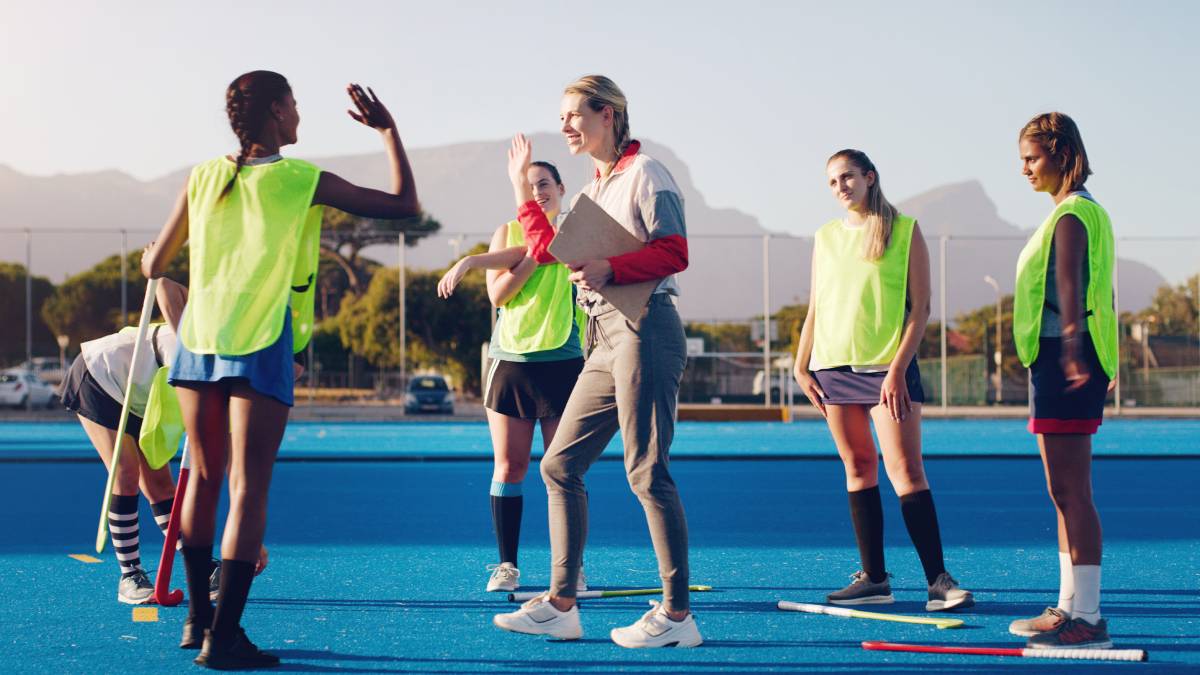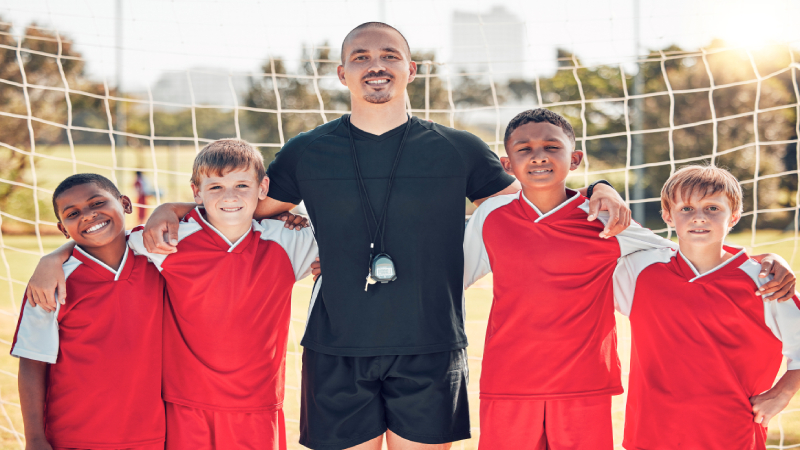Sports managers: The ultimate back-to-school guide

The start of the school year can bring its share of challenges for those in charge of sports. Whether it’s managing registration processes, planning equipment, or recruiting coaches, it’s hard not to feel overwhelmed when school begins.
The guide below will help ensure you’re ready for the next year. MonClubSportif provides you with a list of tips and tricks to plan your 2025–2026 school‐year kickoff effectively.
Ensure that your registration processes are optimized.
The registration period is very demanding for sports managers. To be ready to face back‐to‐school, you must ensure you have optimized registration workflows. Given your heavy workload, every minute of your time is precious. Let’s dive right in!
Choose an effective method for managing registrations
Several methods can be used to streamline registrations. While some still rely on paper forms, it’s better to favor a web‑based solution for the sake of efficiency.
-
With a web form, you can relatively easily create registration questionnaires. For example, Google Forms can be an interesting tool: it’s free and simple to use, and the data collected can then be exported to a spreadsheet to facilitate management.
-
However, Google Forms does not allow you to process and manage payments directly. There are turnkey platforms that handle both registration and payment in a single place. A comprehensive management platform lets you build custom registration forms with automatic validation. It’s also easy to promote your forms within your school using QR codes: simply print them and display them in strategic locations to drive sign‑ups.
The importance of a complete registration form
Collecting player information can be tedious and complex. A well‑designed form greatly simplifies the process by centralizing data. Make sure your registration form is:
-
Concise (avoid unnecessary questions)
-
Clear and uncluttered
-
Mobile‑friendly
-
Efficient (use multiple‑choice fields)
A form with these characteristics will reduce parents’ questions, centralize relevant data, and increase completion rates.
Structure registrations to form balanced teams
A good registration form does more than collect names—it helps you build well‑balanced teams. Include fields such as:
-
Experience level
-
Preferred position
-
Objectives (competition vs. fun)
-
Availability
These details let you compose more homogeneous groups and avoid last‑minute adjustments. By centralizing everything in a tool like MonClubSportif, you can also sort, filter, and communicate efficiently with players and parents.
Plan your equipment management
Back‑to‑school also means handling and checking sports equipment. Assigning uniforms to every team and player is a crucial step. Each player should have a unique number, simplifying the link between player and gear at season’s end—this greatly eases uniform returns and minimizes issues.
At the season’s start, perform a thorough inspection of existing equipment to assess its condition. Here are a couple reminders:
- If items show significant wear, replacing them may be necessary to ensure player safety.
- Verify that you have enough equipment for the expected number of players.
- Be sure to comply with RSEQ and Canadian federal standards regarding equipment.
Ensure you have enough coaches for your teams
Coaches are essential to your programs’ success. Yet recruiting them, identifying the qualities of a great coach, and retaining them year after year can be challenging.
Who to recruit?
Consider approaching different profiles during coach recruitment:
-
Physical‐education teachers: With their teaching background, they’re natural pedagogues. Often hold at least a Level 1 coaching certification in one sport and already know the school environment.
-
Alumni and former teachers: Alumni have sport‑specific knowledge and school loyalty, making them motivated candidates. Former teachers know the school context well and bring relevant training.
-
Student‐athletes: Their expertise and firsthand understanding of current players’ reality allow them to give tailored advice and peer‑level support.
Qualities of a good coach
Qualities of a good coach
The ideal coach has several key traits—some acquired over time and through training:
-
Certifications (e.g., PNCE)
-
Sport‑specific experience and teaching ability
-
Willingness to learn and to invest time in organization
-
Personal qualities: listening skills, empathy, leadership
Even if a candidate possesses only some of these traits, with proper support they can grow into the role.
Tips to keep coaches long‐term
Finding qualified coaches is complex; you must also retain the ones you already have. Implement key elements to boost retention:
-
Recognition: Offer distinctions to coaches who go above and beyond. Highlight their work on social media.
-
Involvement: Increase their say in decisions that affect them.
-
Training: Provide ongoing education so they feel supported.
-
Resource quality: Ensure they have the tools they need (up‑to‑date rules, training plans, facility access).
-
Workload reduction: Use management tools and automated reminders to ease their mental load.
-
Fair compensation: If possible, offer equitable pay.
Small gestures can make a real difference and increase coach loyalty, sparing you the yearly recruitment headache. Be sure to introduce these initiatives at the season’s start!
Invest in continuous training
Beyond recognizing coaches, equip them from Day 1 with concrete tools: training templates, up‑to‑date regulations, facility schedules, etc. Encourage ongoing learning through PNCE certifications or federation courses. You can also host in‑house meetups to share successes and challenges—this builds team spirit and improves retention.
Prevent risks
Many unforeseen events can occur throughout a season, but you can prepare to respond optimally.
Concussion protocols
Implementing a clear concussion‐management protocol is essential to ensure quick, appropriate responses when a player suffers a head impact. Educate all stakeholders on symptoms to watch for and actions to take, and plan communication with parents for suspected concussions.
Bullying awareness in sports
Bullying is a serious issue in Quebec schools and can arise in sports teams. Maintain an up‑to‑date intervention plan and consider brief trainings for coaches and players to raise awareness. Define bullying, present available resources, explain its impact, and cover its various forms. You can also watch our webinar on cyberbullying for more insights.
Optimize communications
Effective communication is critical to smooth sports operations. Use tools that let you send group emails quickly. For instance, notifying all parents of a game cancellation via email can be cumbersome; some management apps let you send messages to player or parent groups in just a few clicks. This frees you to focus on high‑value tasks and avoids miscommunication in emergencies.
Leverage Measures 15028 and 15022
Measure 15028 now supports artistic, cultural, social, and volunteer activities—take advantage of its expansion when planning your programs. Measure 15022 targets well‑being and mental health in schools. To learn more about the 2025–2026 funding measures, contact MonClubSportif’s team at [email protected].
In conclusion
Back‑to‑school can be a stressful, busy time for sports managers, requiring extensive planning and organization. With the tips in this ultimate back‑to‑school guide, you’ll be better prepared to tackle this demanding period.
Don't miss our new complet back-to-school management guide!
Karl Demers

On the same subject
Every year, schools and sports associations face a major challenge: recruiting and retaining competent, dedicated coaches.
It's time to kick off 2025—the perfect moment for high school athletic directors to reflect on their goals and strategies for the year ahead. […]
Managing school sports is an exciting and demanding challenge. Recruiting and retaining coaches, optimizing processes, communicating […]


